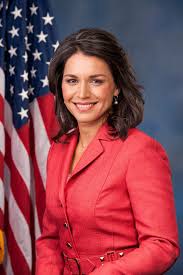Washington DC: The U.S. Senate, on February 10, voted to advance the nomination of Tulsi Gabbard as director of national intelligence, with a 52-46 vote that allowed President Donald Trump to continue his successful push to confirm his nominees. The vote, which was largely along party lines, was a procedural measure to limit debate on the nomination, clearing the way for a full Senate vote later in the week. Republicans overwhelmingly supported Gabbard’s nomination, while Democrats opposed it.
Gabbard’s nomination, which comes despite concerns about her lack of significant intelligence experience, has sparked debate. Critics have pointed to past statements where she seemed to defend U.S. adversaries, particularly her comments on Russia and Syria. However, Republicans have rallied behind the 43-year-old former Democrat, with Senate Majority Leader John Thune praising her willingness to reduce the size of the Director of National Intelligence (DNI) office as part of the Trump administration’s broader goal to streamline government agencies. Thune expressed confidence in Gabbard’s confirmation later this week.
The Senate Intelligence Committee had previously recommended Gabbard’s nomination with a narrow 9-8 vote, also split along party lines. Some senators have raised concerns about her qualifications, pointing out that Gabbard, an Army National Guard veteran, has no prior experience serving on an intelligence committee, which would be crucial in overseeing the 18 U.S. intelligence agencies. Critics also referenced her past support for Russia's actions in Ukraine and her visit to Syria during the tenure of President Bashar al-Assad.
During her confirmation hearing, Gabbard faced tough questions from senators across the political spectrum regarding her past defense of Edward Snowden and her controversial remarks on Russia. Democratic Senator Adam Schiff condemned Gabbard’s nomination, calling her a "walking five-alarm fire" who must be rejected.













